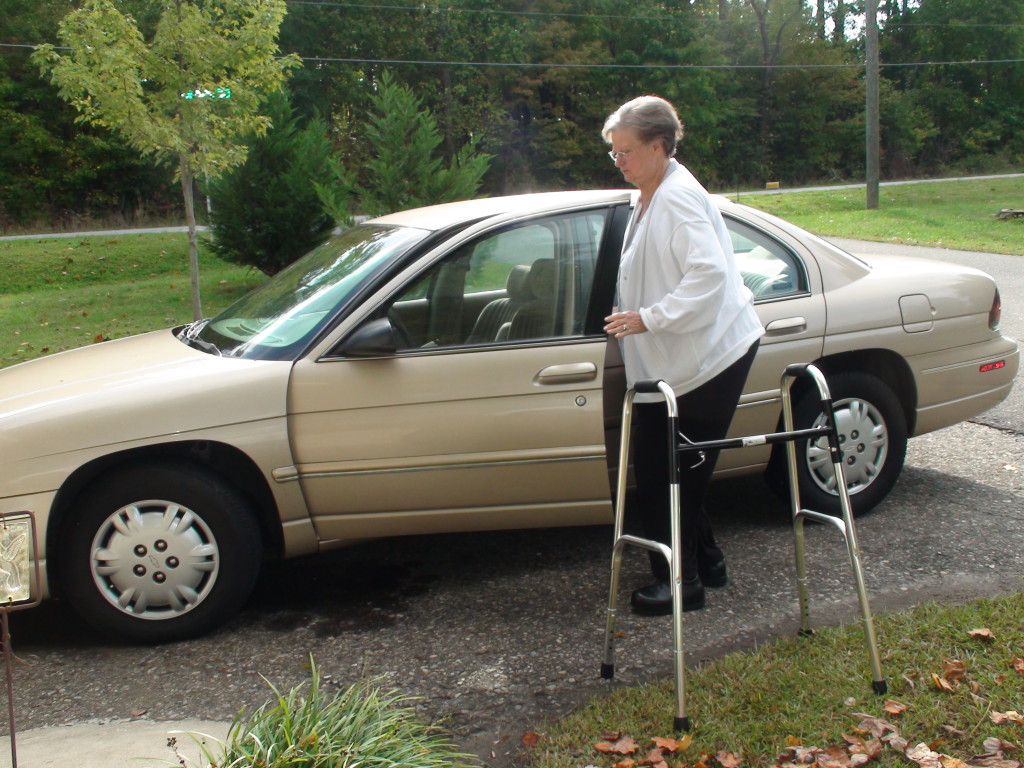Dementia is a loss of brain function that occurs with certain diseases. Dementia usually first appears as forgetfulness. Alzheimer’s disease is a form of dementia that gradually worsens over time. Dementia symptoms include difficulty with many areas of mental function, including:
Emotional behavior or personality
Language
Memory
Perception
Thinking and judgment (cognitive skills)

Dementia and Driving Difficulties
When you drive, different regions of your brain cooperate to receive sensory data (though sight and hearing), prioritize information, recall related past experiences, anticipate likely scenarios, analyze options, plan ahead, use proper judgment, synchronize movement responses, and juggle more than one task at a time. And, because of the nature of driving, each of these required tasks needs to be accomplished with adequate speed. One or more of these functions may be impaired for individuals with dementia. (Excerpted from The Hartford Foundations’ AT THE CROSSROADS, Family Conversations about Alzheimer’s Disease, Dementia & Driving) Center for Mature Market Excellence
Balancing Safety & Independence
For older adults, driving represents independence and freedom. Driving is the means to access healthcare, buy groceries and stay connected with family and friends. It can be difficult to decide when someone with dementia or Alzheimer’s disease should stop driving. Families often try to balance the person’s safety with a need for independence. The decision to continue driving or cease driving can cause deep emotions and stressful interactions for aging family members and their loved ones.Comprehensive Driver Evaluation
Driver Rehabilitation Services provides comprehensive driver evaluations for persons with Dementia or Alzheimer’s disease. This assessment provides an independent, professional evaluation to aid family members with making crucial decisions affecting safety. Clinical assessments of the client’s physical, visual, perceptual, cognitive and behavioral skills are performed along with an on the road assessment to determine the individual’s medical fitness and functional status for continued driving privileges. Recommendations regarding continued driving, cease driving or driving with restrictions such as no interstate or no night driving may be made.Refer a Driver with Dementia/Alzheimer’s
Dementia is a loss of brain function that occurs with certain diseases. Dementia usually first appears as forgetfulness. Alzheimer’s disease is a form of dementia that gradually worsens over time. Dementia symptoms include difficulty with many areas of mental function, including:
Emotional behavior or personality
Language
Memory
Perception
Thinking and judgment (cognitive skills)

Dementia and Driving Difficulties
When you drive, different regions of your brain cooperate to receive sensory data (though sight and hearing), prioritize information, recall related past experiences, anticipate likely scenarios, analyze options, plan ahead, use proper judgment, synchronize movement responses, and juggle more than one task at a time. And, because of the nature of driving, each of these required tasks needs to be accomplished with adequate speed. One or more of these functions may be impaired for individuals with dementia. (Excerpted from The Hartford Foundations’ AT THE CROSSROADS, Family Conversations about Alzheimer’s Disease, Dementia & Driving) Center for Mature Market Excellence
Balancing Safety & Independence
For older adults, driving represents independence and freedom. Driving is the means to access healthcare, buy groceries and stay connected with family and friends. It can be difficult to decide when someone with dementia or Alzheimer’s disease should stop driving. Families often try to balance the person’s safety with a need for independence. The decision to continue driving or cease driving can cause deep emotions and stressful interactions for aging family members and their loved ones.Comprehensive Driver Evaluation
Driver Rehabilitation Services provides comprehensive driver evaluations for persons with Dementia or Alzheimer’s disease. This assessment provides an independent, professional evaluation to aid family members with making crucial decisions affecting safety. Clinical assessments of the client’s physical, visual, perceptual, cognitive and behavioral skills are performed along with an on the road assessment to determine the individual’s medical fitness and functional status for continued driving privileges. Recommendations regarding continued driving, cease driving or driving with restrictions such as no interstate or no night driving may be made.Refer a Driver with Dementia/Alzheimer’s

